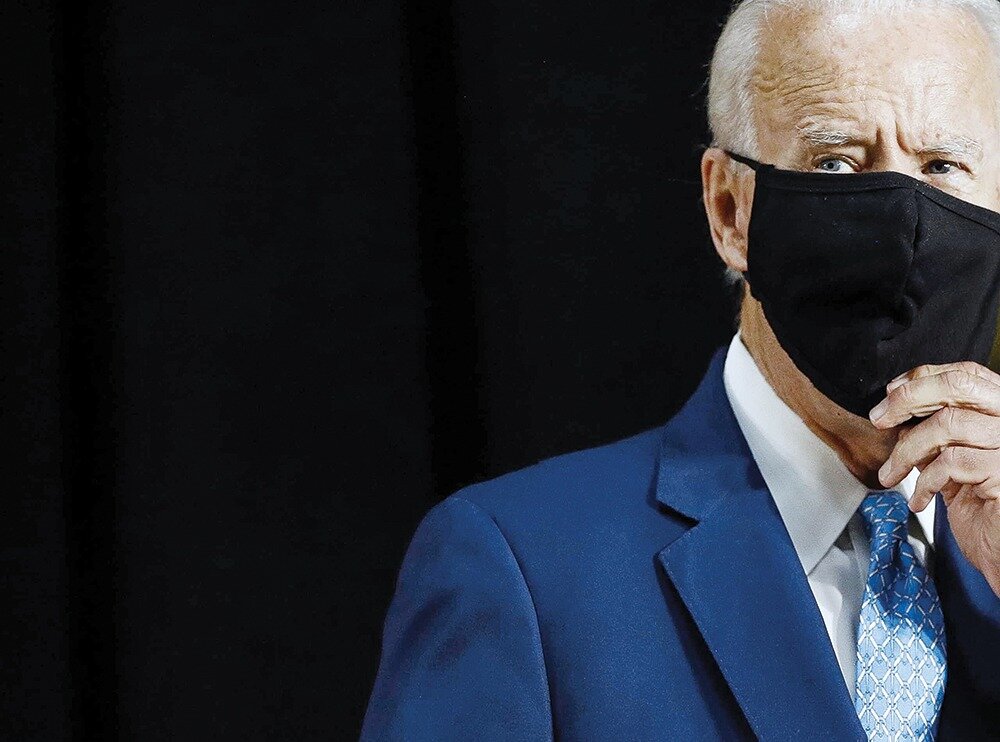The Biden administration backs down on its promises
TEHRAN – As the Vienna nuclear talks go forward the Biden administration intensifies its efforts to maintain the sanctions that the previous U.S. administration imposed on Iran in clear violation of its promise to change tack on Iran.
In late January, when the Biden administration was considering appointing Rob Malley as special envoy on Iran, the Tehran Times published a report saying the kerfuffle over his appointment was gratuitous as Malley was not going to change the deeply institutionalized American hostility toward Iran.
Now that the Vienna talks have entered a determining phase, the prediction of the Tehran Times proved right because Malley is now striving to wheedle more concessions out of Iran’s negotiating team in exchange for nothing.
The U.S. negotiating team at the Vienna talks has presented maximalist demands and offered minimalist concessions, according to press reports. This approach has so far been rejected by Iran, indicating that the current round of talks may not be enough for both sides of the negotiations to bridge the gap between their positions.
The U.S. has agreed to lift half of the sanctions imposed by the Trump administration while it continues to reject the lifting of all the sanctions, which stands at 1,500, according to a report published by Al Araby Al Jadeed newspaper. Citing Iranian sources familiar with the matter, the newspaper said lifting the nuclear-related sanctions did not constitute a major obstacle to the negotiations, as Washington affirms its readiness to lift the sanctions that include the most important Iranian economic sectors, but Iran believes that lifting these sanctions alone is useless, as they include basic sanctions on Iran’s oil and financial sectors, which were re-sanctioned under counterterrorism authorities.
According to Al Araby Al Jadeed, the U.S. administration continued to cling to the sanctions related to combating terrorism, alleged human rights violations and the missile program during the first three rounds, but it showed flexibility during the fourth round regarding some of the sanctions related to combating terrorism, which constituted an important breakthrough in the negotiations.
The U.S. also declared its readiness to “suspend” sanctions imposed on oil and the Central Bank of Iran, which the previous U.S. administration sanctioned under The Countering America's Adversaries Through Sanctions Act (CAATSA) passed by Congress in August 2017.
In line with CAATSA, the U.S. administration once again imposed sanctions on major Iranian economic sectors, such as the Central Bank, the National Development Fund, the National Oil Company and the National Iranian Tanker Co, under the pretext of their links to the Iranian Revolution Guard Corps (IRGC), which was designated by Washington as a “terrorist organization” in 2019.
While this kind of sanctions was basically meant to make it difficult, if not impossible, for the Biden administration to revive the 2015 Iran nuclear deal, officially known as the Joint Comprehensive Plan of Action (JCPOA), the Biden administration’s negotiating team at the Vienna talks proposed only a “suspension” of sanctions not lifting them. They justified this proposal by complaining that the U.S. president lacked the necessary legal authority to lift the CAATSA-related or Congress-led sanctions, according to the Qatari newspaper.
Al Araby Al Jadeed said the suspension of this type of sanctions, - counterterrorism sanctions- is subject to timetables of up to six months, and that the continuation of the lifting of the sanctions would be subject to renewal every six months, something that aroused fears in Iran that this renewal would be used by the U.S. as leverage to impose pressure on Iran.
Article 112 of CAATSA stipulates that the U.S. president can suspend sanctions for a period of 180 days by notifying Congress that the suspension of sanctions is based on national security reasons. That means that even the lifting of half of the sanctions would be temporary and not perpetual. In addition, the U.S. has refused to remove sanctions on the IRGC.
The U.S. linked the lifting of all sanctions to discussing all issues, according to Al Araby Al Jadeed. In addition to the issue of sanctions, the U.S. also sought to extract new concessions from Iran in terms of nuclear research activities. Al Araby Al Jadeed said the U.S. wanted Iran to “destroy” the advanced centrifuges it installed at Fordow and Natanz after the U.S. withdrawal from the JCPOA because the Americans believe that Iran went too far in developing its nuclear capabilities.
Furthermore, the U.S. also demanded a prolongation of the JCPOA’s sunset clauses in an attempt to achieve what the Trump administration failed to achieve through multi-pronged pressures. Among these clauses is a restriction on the procurement of dual-use goods and equipment.
The most diplomatically explosive part of the Al Araby Al Jadeed report is the U.S. refusal to lift an arms embargo on Iran that expired in October 2020 in accordance with the JCPOA. The sources told the newspaper that Washington refused to cancel the arms embargo on Tehran, which ended under the nuclear agreement on October 18, 2020. Instead, the Biden administration expressed a desire to maintain the arms embargo by adhering to the executive order issued by Trump regarding the continuation of this ban.
That the Biden administration wants to extract more concessions from Iran by using the Trump-era sanctions is not surprising. What is surprising and amounts to political chutzpah is that the diplomats – such as Wendy Sherman and Rob Malley- who negotiated the JCPOA in the first place now refuse to implement what this deal stipulates concerning the end of the arms embargo.


No comments:
Post a Comment